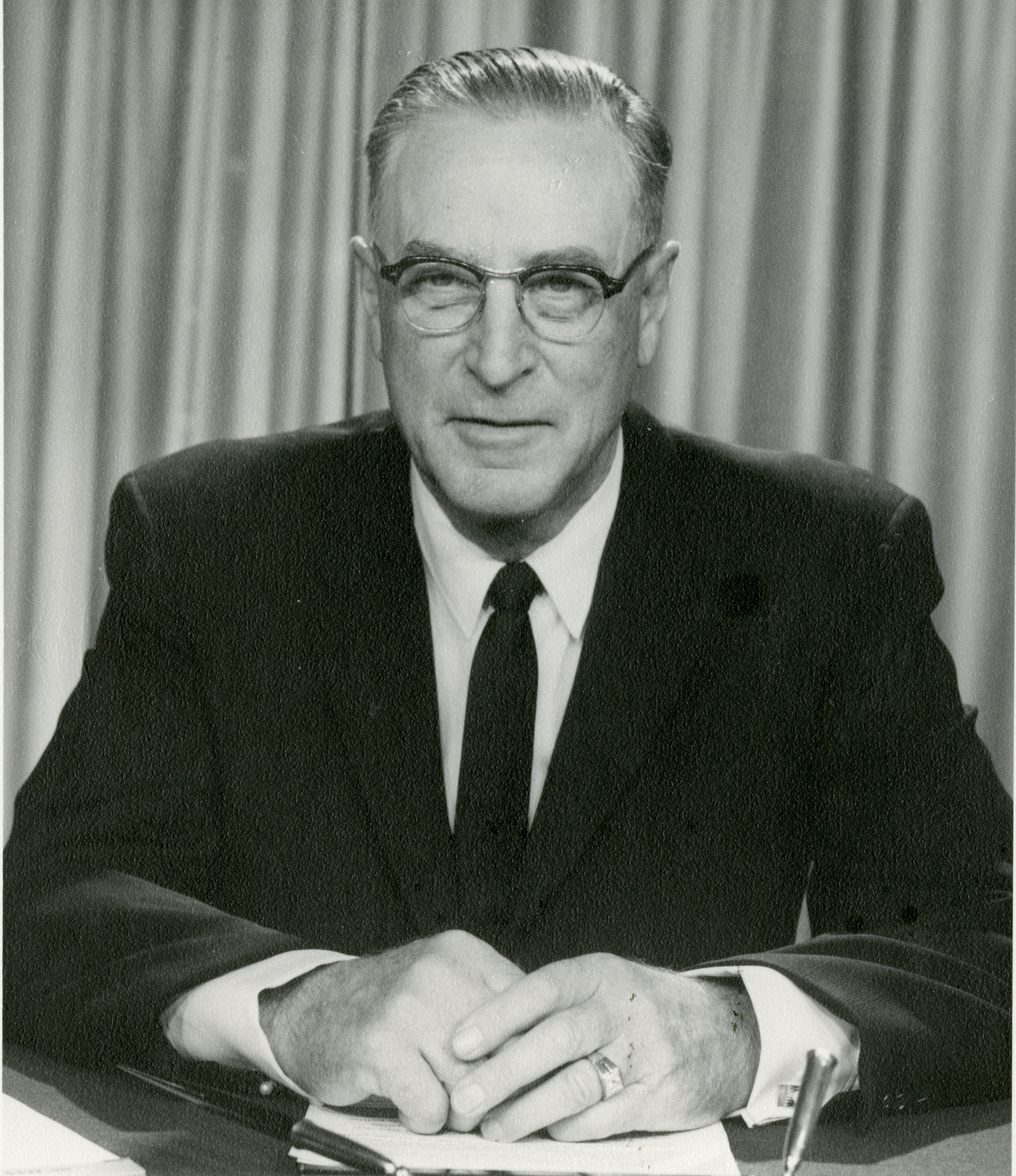Milton Young
| Milton Ruben Young | |
|---|---|
 |
|
| President pro tempore of the United States Senate | |
|
In office December 5, 1980 – December 5, 1980 |
|
| Preceded by | Warren G. Magnuson |
| Succeeded by | Warren G. Magnuson |
| Senate Republican Conference Vice-Chair | |
|
In office January 3, 1946 – January 3, 1971 |
|
| Leader | Wallace H. White Jr. |
| Preceded by | Milton R. Young |
| Succeeded by | Norris Cotton |
|
United States Senator from North Dakota |
|
|
In office March 12, 1945 – January 3, 1981 |
|
| Preceded by | John Moses |
| Succeeded by | Mark Andrews |
| Member of the North Dakota Senate | |
|
In office 1934 |
|
| Member of the North Dakota House of Representatives | |
|
In office 1932–1934 |
|
| Personal details | |
| Born |
December 6, 1897 Berlin, North Dakota |
| Died | May 31, 1983 (aged 85) Sun City, Arizona |
| Political party | Republican |
| Spouse(s) | (1) Malinda Benson (deceased) (2) Patricia Byrne |
| Religion | Reorganized Church of Jesus Christ of Latter Day Saints |
Milton Ruben Young (December 6, 1897 – May 31, 1983) was a United States politician, most notable for representing North Dakota in the United States Senate from 1945 until 1981. At the time of his retirement, he was the most senior Republican in the Senate.
Young was born at Berlin, North Dakota, and graduated from LaMoure High School. He attended North Dakota State University and Graceland College. In 1919, he married Malinda Benson; they had three sons. Malinda died in 1969. (Young later married Patricia Byrne, his secretary in the Senate, of Bowman, North Dakota.) After college, Young returned home to operate his father's farm.
Young became increasingly interested in politics during the depression and drought of the late 1920s and 1930s. He was active in community affairs, serving on the school, township, and county Agricultural Adjustment Act (AAA) boards. He stood for election to the North Dakota House of Representatives in 1932; he won, and was then elected to the state Senate just two years later. Young was also one of the key persons in developing the Republican Organizing Committee in North Dakota during the 1940s. With the death of John Moses in 1945, Governor Fred G. Aandahl appointed Young to fill the vacant U.S. Senate seat, and Young was forced to relinquish management of the family farm, in order to fulfill his duties in Washington.
Young spent the remainder of his career in the Senate, becoming one of the longest-serving members of the Senate in its history. His major committee assignments were on the Agriculture, Nutrition, and Forestry committee, and the Appropriations committee of which he was the ranking Republican member. In 1974, during his last election for the U.S. Senate, Young's age was being used against him during the Republican primary; Young had himself filmed breaking a piece of board with his bare hands and easily won renomination.
...
Wikipedia
